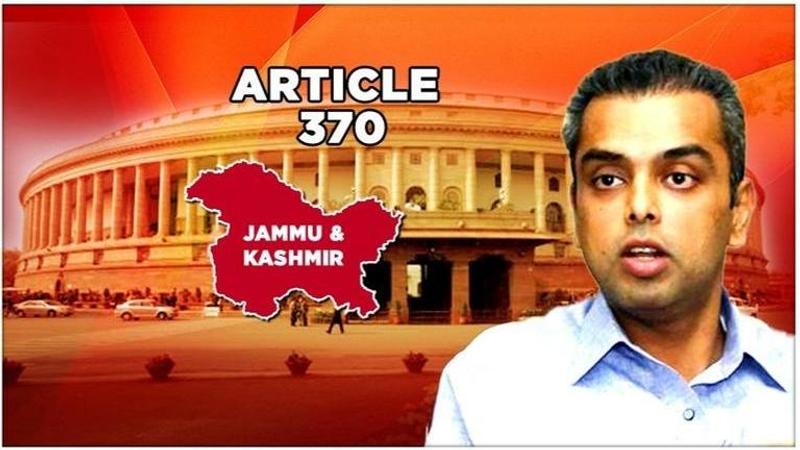Published 22:12 IST, August 5th 2019
J&K's Article 370 scrapped, Milind Deora says 'don't debate ideologies - debate jobs, justice and peace'
After the Rajya Sabha passed a statutory resolution on Article 370 and the state Reorganisation bill on Monday, Congress' former Mumbai president Milind Deora said that the discussion over the legislative piece was being converted into a debate between liberals and conservatives and that was unfortunate.

After the Rajya Sabha passed a statutory resolution on Article 370 and the state Reorganisation bill on Monday. The Bill to abrogate Article 370 saw an easy passage in the Rajya Sabha with 125 members voted in its favour and 61 voted against it. Congress' former Mumbai president Milind Deora said that the discussion over the legislative piece was being converted into a debate between liberals and conservatives and that was unfortunate. He urged parties to put aside ideological fixation and debate over justice for Kashmiri Pandits and jobs for Kashmiris.
Here's what he said:
"Unfortunate that Article 370 is being converted into liberal vs conservative debate. Parties should put aside ideological fixations and debate what’s best for India’s sovereignty, peace in J&K, jobs for Kashmiri youth and justice for Kashmiri Pandits."
What is Article 35 A?
Incorporated in the Constitution by a 1954 Presidential order, Article 35 A defines the permanent residents of the state of Jammu and Kashmir by giving special rights and privileges to the state subjects. It stems from Article 370 that gives an autonomous right to Jammu and Kashmir.
The article is also referred to as Permanent Residents Law and bars woman belonging to the state from any property rights if she marries a person from outside the state. Even the children of such women do not get the right as they do not have any succession rights over the property.
What is Article 370?
It exempts Jammu and Kashmir from following the Indian Constitution except for Article 1 and itself. It also restricts Parliament's legislative powers in Jammu and Kashmir. It was passed in the Constituent Assembly on May 27, 1949 and is the first article of Part XXI of the Indian Constitution. The heading of this part is ‘Temporary, Transitional and Special Provisions’
Updated 22:12 IST, August 5th 2019




